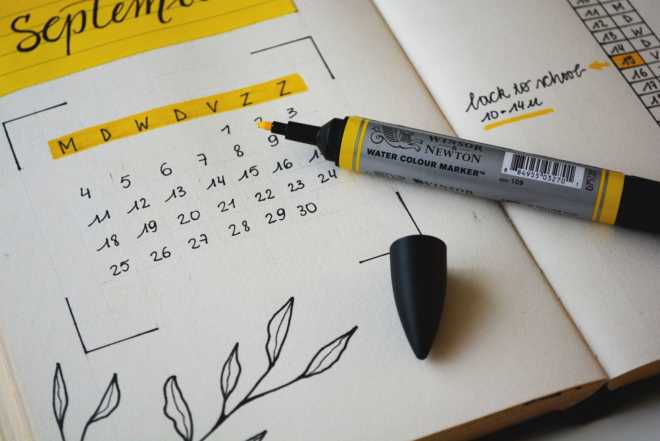Committing to Process Goals to Accomplish More with Less Stress
CraftsTechTravelFitness & HealthPersonal Development
September 7, 2018 •6 min read
There are countless articles and books written about setting goals, timelines, and tasks. Something I have found to be effective for large goals that span weeks, months, or years, is to focus on setting "process goals", or goals that are more focused on getting something done, and moving forward, rather than on the end result.
For example, about three months before my trip to Italy, I decided it would be a good idea to pick up some Italian before leaving. I knew that three months was not enough time to become fluent, but also that the more I knew, the better. It was difficult to come up with an end goal - would it be number of words? Certain grammatical concepts? Number of useful phrases? Instead, I gave myself a goal of dedicating at least 15 minutes a day to studying, to just learning something.
I could learn more if I felt like it, but I had to accomplish at least 15 minutes a day. This was a much less stressful way to learn and prepare for my trip without feeling anxious if I wasn't learning fast enough to reach some kind of end goal.
Learning Italian for the trip to Italy didn't have a set goal for what I needed to have learned but it did have a set end date (the trip). I also have been using process goals for learning ReactJS, but unlike learning Italian, I have a goal for what I wanted to have covered (an entirety of the Udemy course I am taking) but no set end date. I focus on studying at least one hour a day, and in this way move steadily through the course without worrying about the calendar. The goal isn't to meet a deadline, but to move forward.
This is the same technique used by #100DaysOfCode, where the goal is to write some code, any code, for at least an hour a day. It even encourages accountability by tweeting with the hashtag, another important part of goal attainment. I am considering starting this for React once I get through the Udemy course to jumpstart my practice and building my portfolio.
I find that when I set clear goals with strict deadlines, sometimes the accomplishment of those goals are like a sine wave. Sometimes I am really focused and committed and I make great progress toward the goal. But sometimes I just burn out, lose interest, and I make no progress. Then the deadline looms and I either cram for it, stressed out about completing it, or I talk myself out of it and move the date, change the goal, or abandon it altogether.
In college, I was most effective at completing assignments either way ahead of the goal when I got a flash of inspiration and got really into it, or a couple of days before it was due. It was difficult to follow consistent mini-goals.
The nice thing about process goals is that if I do burn out and feel like I just need a break from achieving my daily goals, I can put a pin in them and start up with them again later without feeling too guilty for having missed a deadline. However, to maintain a habit, it's best not to take breaks of more than a day or two.
Another area where process goals can be helpful is health or fitness. Last year I committed to walking for half an hour on my lunch break. I didn't have any specific goal or deadline, I wasn't training for a bikini contest or a 5K. I just had the goal of walking daily. I changed my goal a bit every couple of weeks, starting with half an hour and going up to an hour by the time it got too hot to walk outside. That is when I switched to light jogs at the gym where I worked. Again, I started slow, and slowly worked up to half hour runs. Without the pressure of a set deadline or end goal, I worked up to half hour runs and was consistently getting 10,000 steps a day.
This works well for other areas of health as well, though it may not always be a daily process goal but still a process goal nonetheless. For example:
- I will work out three times a week for the next X months
- I will get 150 minutes of cardio every week for the next X months
- I will not eat any junk food for the next X months
- I will not have any sugary drinks for the next X months and will restrict alcoholic drinks to one per week
- I will maintain a calorie deficit (or surplus) of 500 calories a day for the next X months
For goals like these, you may want to weigh yourself before and after if you are wanting to lose (or gain) weight, but not during the time period you have set these goals for. If you set a weight goal and are monitoring that, then the weight becomes the goal rather than the process. Nothing wrong with that, it's just a different way of setting goals. The point of process goals is to focus on what you are doing consistently, and not what the end result is.
I have recently started knitting again after a break during the summer when I got tired of knitting washcloths but it felt too early to start knitting fall and winter items. When knitting something large or tedious or something complex and time-consuming, I find I get discouraged sometimes because it feels like it takes too long to finish it. This fall, I will start using process goals instead. Instead of focusing on finishing a project, I will focus on daily knitting, even if it's just fifteen minutes before bedtime. This way I know I will make progress, even if it's not as fast as my impatient mind thinks it should be. And I will focus on relishing the meditative process of knitting more and thinking about finishing less.
What about you? Do you find that discrete, time-bound goals are difficult to stick to?


Share
Think others might enjoy this post? Share it!
Comments
I'd love to hear from you, let me know your thoughts!